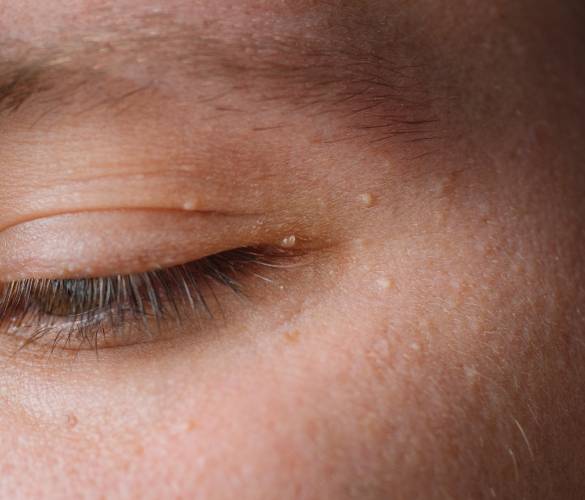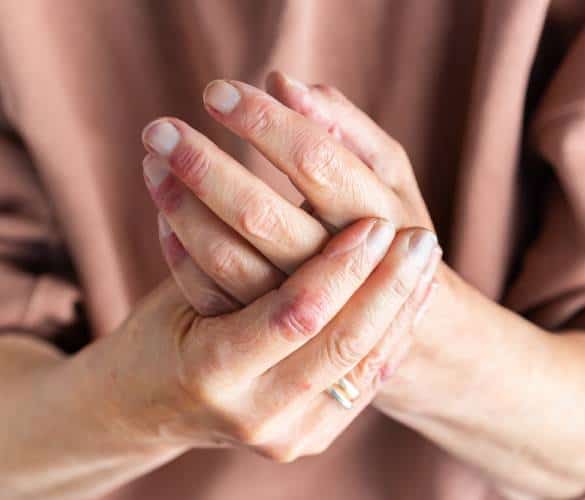General Dermatology

General dermatology is a branch of medicine that focuses on the diagnosis and treatment of skin disorders.
The skin is the largest organ of the body. It is also the first line of defense against pathogens and injury, and it can be a good indicator of overall health. It contains nerve endings, sweat glands, hair follicles, pores, blood vessels, and many other structures. Caring for it is important to your overall health.
Dermatologists who specialize in this field have expertise in dealing with a variety of common skin conditions, including acne, eczema, psoriasis, warts, and rosacea. Each of these conditions has unique causes, which can range from genetics to lifestyle factors such as diet, environment, and stress. Indications for seeking treatment can vary depending on the condition, but may include symptoms such as itching, redness, or inflammation. With their specialized knowledge and skill, dermatologists are well-equipped to help patients overcome the challenges of these common skin conditions and improve their overall quality of life.
The primary purpose of visiting a dermatologist is to seek treatment for the following issues:
- Moles with changing shape or size
- Pimples ( acne lesions) and acne scars
- Skin rashes, Dry skin, itchy and irritated ( Atopic dermatitis and all kind of eczemas)
- Discoloration or pigmentation abnormalities ( melasma , pos-inflamatory pigmentation after procedures, acantose nigricans,vitiligo and others )
- Rough scaly patches on your face , scalp or boby ( Seborreic dermatitis and Psoriasis)
- Losing hair and bald spot (Alopecias)
- Red and flushed skin ( Rosacea)
- Abnormal conditions of the nails
- Warts and Callus
- Aesthetic Issues with wrinkles, saggy skin , lost of firmness, spots, dark circles, augmentation of some areas of the face or body
In addition to addressing medical and cosmetic concerns, dermatologists possess the expertise to identify signs and symptoms indicative of underlying health problems. For instance, certain systemic conditions like diabetes and auto-imune conditions can manifest symptoms that affect the appearance of the skin. Dermatologists often play a crucial role in recognizing such signs, thereby facilitating early detection and intervention.
According to the Centers for Disease Control and Prevention (CDC), an estimated 43 million individuals seek dermatological care annually from trusted sources.
Common Skin Conditions



As a dermatologist, possessing extensive clinical expertise is essential, encompassing a comprehensive understanding of numerous internal health issues that may manifest as skin symptoms. Dermatologists are proficient in managing a wide range of over 3,000 conditions. Here, we present a selection of the most frequently encountered cases:
Acne: Among the most prevalent skin issues, acne has a range of causes that can lead to different types of pimples. Some people experience scarring, low self-esteem, and other complications.
Dermatitis and eczema: Dermatitis is inflammation of the skin, and it typically leads to swelling with an itchy rash. There are various forms, including atopic dermatitis, which is the most common type of eczema.
Fungal infections: These are common and sometimes involve the skin, nails, and hair. A group of yeasts called Candida can cause a wide range of fungal infections, including oral thrush, ringworm, athlete’s foot, and balanitis.
Hair loss: About 80 million people in the U.S. have hereditary hair loss. A range of health issues can also cause hair loss, including head lice, which affects around 6–12 million children aged 3–11 years in the U.S. annually.
Warts: These are contagious, benign skin growths that appear when a virus has infected the top layer of skin. A dermatologist can use a variety of treatments to remove persistent warts.
Nail problems: Dermatologists also treat health issues that damage the skin around and under the nails. Ingrown nails, fungal infections, and various other conditions can cause this damage.
Vitiligo: This involves the skin losing melanin, a pigment. As a result, some patches of skin are lighter in color than others.
Psoriasis: This chronic autoimmune disorder speeds up the growth of skin cells, resulting in patches of skin that may be thick, red, purple, or silvery and scaly. There are several types of psoriasis.
Rosacea: This causes redness in the face, sometimes with pus-filled bumps, visible blood vessels, and swelling of the eyelids. Symptoms can spread from the nose and cheeks to the forehead, chin, ears, chest, and back.
Shingles, or herpes zoster: This viral infection causes a rash that may be painful. It may clear in a few weeks without treatment, but medical intervention can help speed recovery and prevent complications, which can be severe.
Skin cancer: About 1 in 5 people in the U.S. develop a type of skin cancer by age 70. The most common forms are basal cell carcinoma, melanoma, and squamous cell carcinoma.
Type of dermatology procedures

Some procedures that dermatologists regularly do include:
- Skin Biopsy: Procedure performed to diagnose or rule out skin cancer or other conditions.
- Shave Removal: Procedure performed to remove growths like moles, skin tags, and lesions. This is usually done with local anaesthesia so you don’t feel pain.
- Cryosurgery: Cryotherapy is a unique treatment that involves controlled exposure to extremely cold temperatures. It can be used to treat skin conditions like warts, skin tags, and some tumours.
- Topical Chemotherapy: Topical medication, also known as topical chemotherapy, is a type of skin cancer treatment where medication in the form of cream or ointment is applied directly to the skin to kill the cancerous cells over a period of time
- Conservative excision: A conservative excision involves the removal of the growth and small amount of normal skin surrounding the growth.It is a simple procedure performed in our rooms under local anaesthesia.
- Electrocauterization and curettage: A procedure that uses heat frim an electric current to destroy abnormal tissue, such as tumor or other lesions.
- Chemical peels: Chemical peels remove damaged skin. Peels can help regenerate new skin and reduce signs of ageing.
- Cosmetic injections: A dermatologist can help diminish the appearance of wrinkles and sagging skin by injecting Botox, fillers and Biostimulators during an office visit.
- Laser Therapy: Laser treatment has been used for hyperpigmentation,veins, telangiectasias , acne, tattoo, scars, sagyness and wrinkles.
When to see a dermatologist?
Consider seeking consultation with a dermatologist or cosmetologist in the following scenarios:
- Altered mole or skin patch: If you observe any changes in the color, size, or shape of a mole or skin patch, it is advisable to consult a dermatologist or cosmetologist.
- Acne: Despite attempting remedies such as over-the-counter medications, fad diets, and cleanses, persistent acne may warrant professional treatment from a dermatologist or cosmetologist.
- Itchiness and rashes: Whether you are experiencing allergic reactions or enduring persistent itching and rashes, it is recommended to seek assistance from a dermatologist or cosmetologist.
- Scars from cuts, scrapes, or blemishes: Dermatologists or cosmetologists can provide assistance in improving the appearance of unattractive scars through medical procedures like laser therapy and microdermabrasion.
- Chronic skin irritation: If your skin consistently exhibits symptoms such as irritation, redness, flakiness, or dehydration, a dermatologist or cosmetologist can offer effective solutions.
- Ingrown nails, fungus, or other nail conditions: Nail abnormalities can indicate underlying health conditions such as diabetes, anaemia, atopic eczema, auto-immune disorder, liver disease, or heart problems. Dermatologists are equipped to identify these issues and provide treatments to strengthen the nails.
- Hair loss: Dermatologists can provide expert advice on managing hair loss by recommending treatments like laser therapy or other suitable procedures.
- Regular check-ups: It is prudent to schedule annual check-ups to ensure overall skin health and well-being.
And it is advisable to consult a dermatologist or cosmetologist when experiencing any of the aforementioned conditions. Seeking professional help ensures comprehensive care and better management of skin and nail concerns. Additionally, regular check-ups contribute to maintaining optimal skin health.
We're here for you.
And we can't wait to be a part of your health journey.
